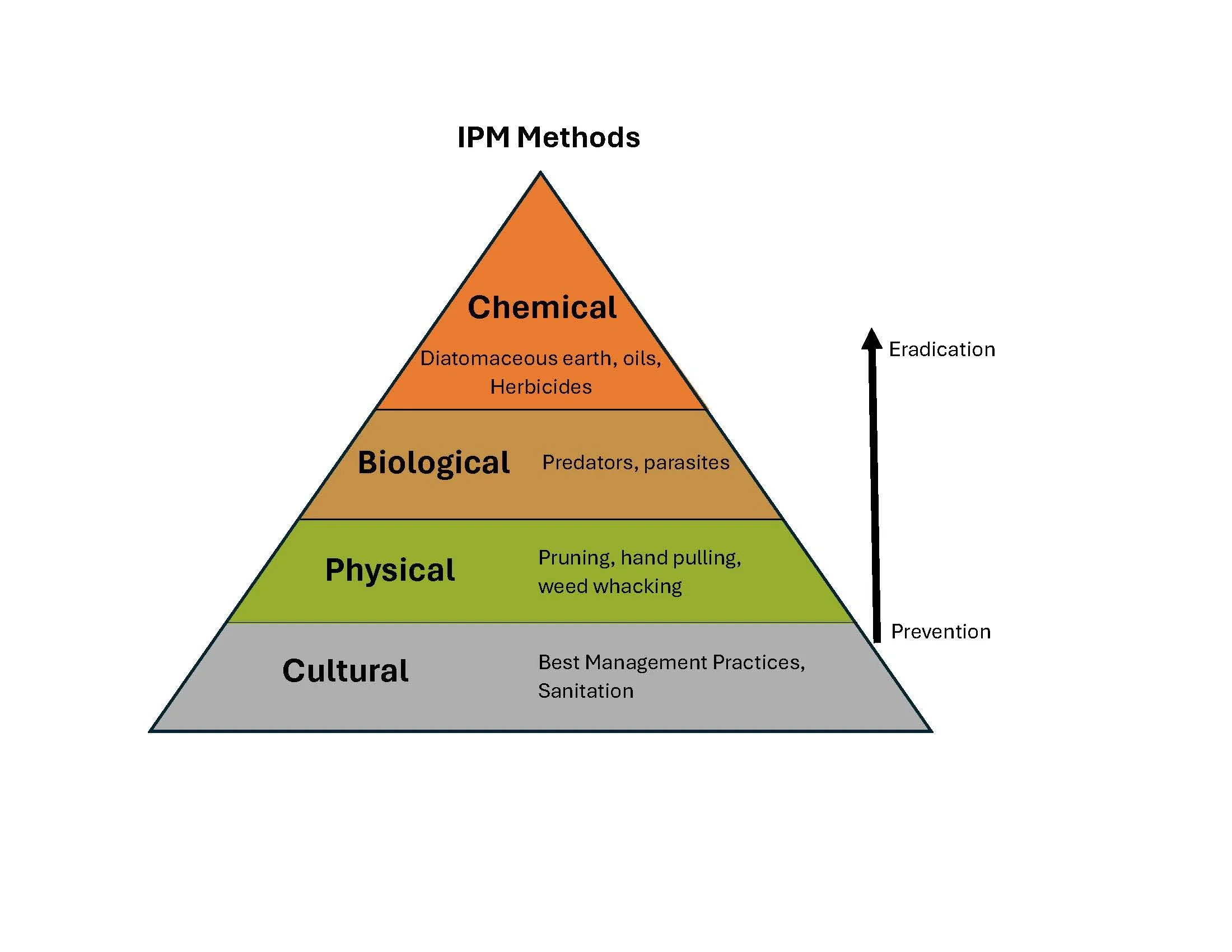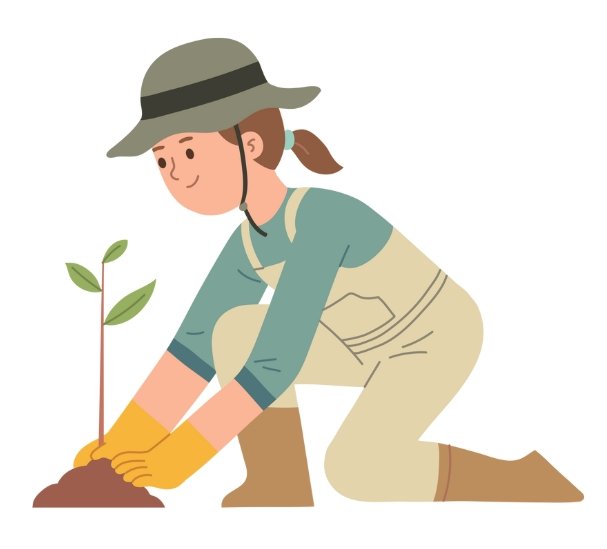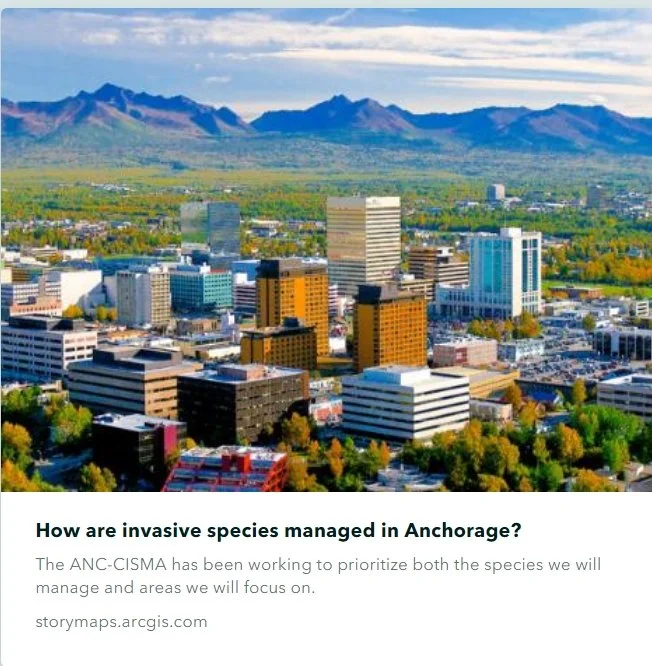
Anchorage Cooperative Invasive Species Management Area
ANC-CISMA: Keeping invasives out of the picture
Thank you for attending the 13th Annual Anchorage Invasive Plant Smackdown!
-
An Invasive Species is a non-native species that causes harm to humans, the environment, or the economy.
-
Invasive species cause some kind of harm. A common theme among invasive plants in Alaska is their tendency to form monocultures, crowding out any other species and reducing biodiversity.
There are some native species which are considered 'weeds' like yarrow, horsetails, even fireweed! They tend to spread aggressively, which may not be ideal in your yard or garden but play an important role in Alaska's wild lands. -
Invasive species may not seem like a big deal, but they pose a threat to Anchorage’s unique ecosystems, native plants & wildlife, and even the economy.
Check out this great article from USFWS Everyone Loses: Invasive Species in Alaska | U.S. Fish & Wildlife Service
-
In Anchorage, invasive terrestrial plants are common.
Did you know we also have:Elodea (aquatic plant)
Rats
Northern Pike
European Black Slugs
European Starling
What does the ANC-CISMA do?
Strategic Planning & Surveying
In 2024, ANC-CISMA members worked together to create a strategic plan for Anchorage to act as a guiding document for decision making, including both species and areas.
We are also in planning process for a species-specific management plan for Prunus trees.
Using these guiding documents, partners identify important areas to survey for invasive plants.
Invasive Plant Management
ANC-CISMA members use Integrated Pest Management practices to manage invasive plant infestations, including cultural, physical, and chemical methods.
The Alaska Invasive Species Partnership has created a great resource on Integrated Pest Management in Alaska.
Restoration
In many places where invasive species are removed, native plant populations are healthy and able to recolonize disturbed areas.
In other areas, restoration may be necessary to re-establish native species which were outcompeted by invasive plants.
Partners also plant trees and host plant salvage events.




